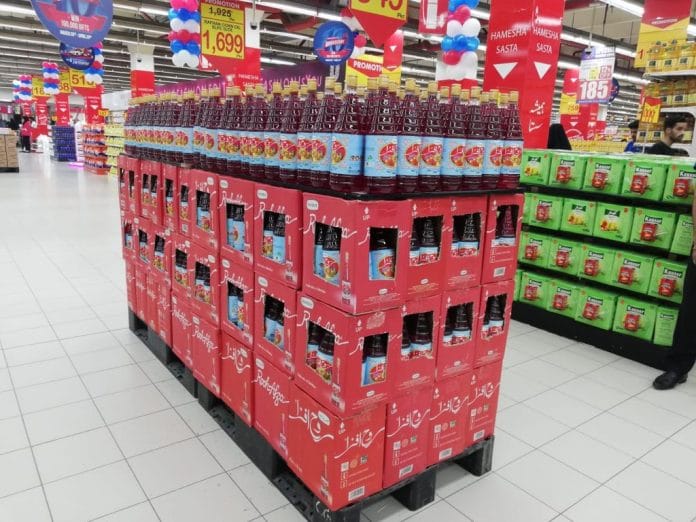New Delhi: There may be some respite for Indian Muslims fasting in the holy month of Ramzan after all, if the government of India allows it.
In response to ThePrint’s report about the popular drink RoohAfza being off the market during Ramzan, the head of Hamdard Laboratories Waqf Pakistan has offered to supply it to India through the Wagah border.
The offer was made a few hours after the report was published Tuesday. The report revealed why the sherbet, manufactured by India’s Hamdard Laboratories, had gone off the market.
Breaking the fast in the evening (called iftar) with RoohAfza has been a tradition among many Muslims in India, especially in the north.
Usama Qureshi, MD and CEO of Pakistani Hamdard, tweeted: “We can supply RoohAfza and RoohAfzaGO to India during this Ramzan. We can easily send trucks through Wahga (sic) border if permitted by Indian Government.”
Brother @DilliDurAst, we can supply #RoohAfza and #RoohAfzaGO to India during this Ramzan. We can easily send trucks through Wahga border if permitted by Indian Government.
— Usama Qureshi (@UsamaQureshy) May 7, 2019
In another tweet, he mentioned how Pakistani Hamdard, the company that manufactures the drink is growing by leaps and bounds.
Pakistani @Hamdard_PK is growing by leaps and bounds, having given a production licence in Bangladesh and dominating global exports of RoohAfza. It has even launched a carbonated version of RoohAfza in Pakistan, called RoohAfza Go.https://t.co/UnAnGG8kFw via @ThePrintIndia
— Usama Qureshi (@UsamaQureshy) May 7, 2019
RoohAfza has been off the market in India for four to five months now, and is not available at online stores as well. While Hamdard did not put out any official word about it, it did try blaming the stopping of production on shortage of “raw material”.
Shared ancestry
The two Hamdards have common ancestry — the original was founded by Unani medicine practitioner Hakeem Hafiz Abdul Majeed in old Delhi in the early 1900s, while the one in Pakistan was founded by his son Hakeem Mohammed Said, who migrated after Partition, in 1948.
This latter entity has been an indirect beneficiary of the legal dispute raging over the control of Hamdard in India, between the current Chief Mutawalli (equivalent of CEO) Abdul Majeed and his cousin Hammad Ahmed, who claims rightful inheritance.
Sales of the Pakistani RoohAfza have shot up, though it’s not readily available in stores. The imported version is selling for over Rs 375 a bottle, as against Rs 145 for the one manufactured in Ghaziabad.






